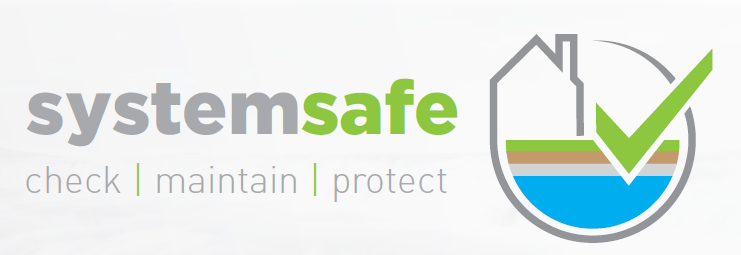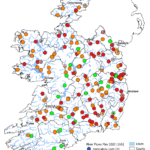The EPA runs a national hydrometric monitoring programme which measures…
Registration, maintenance and grants for septic tank systems
Around 500,000 households in Ireland have a wastewater system that includes septic tanks and packaged systems.
About 137,000 of these also have a private well for drinking water.
Since 2013, all homeowners with a wastewater system must be registered with their local authority (LA).
The Environmental Protection Agency (EPA) is an independent public body. The EPA are responsible for supervising local authorities when they inspect wastewater systems. The EPA and local authorities do this to ensure that the systems are suitable and well maintained.
Poorly maintained wastewater systems can affect your drinking water, especially from private wells.
Many people assume that their private well water is safe to drink and don’t treat it or get it tested. They shouldn’t because a recent study found that E.coli, which can cause serious illness, is present in almost a third (29%) of Irish private wells.

Have you completed a septic tank system check?
To help people with a septic tank know what to do, this plain English leaflet on tells you how to:
- Check your septic tank works
- Maintain it properly
- Protect your health and local environment
Maintain your wastewater system and you will help to protect your health and local environment.
“A well maintained system in the right site with the right soil conditions will protect your health, your local environment and your pocket.”
Regulation and inspection of septic tank systems
The Regulation of Domestic Waste-Water Treatment Systems (DWWTS) (2012) govern the operation and maintenance of septic tank systems.
There are approximately 490,000 septic tanks systems in Ireland. All home owners not connected to a public sewage system are required to register their treatment system on www.protectourwater.ie
In order to work effectively, DWWTS need to be maintained and desludged on a regular basis and this is the responsibility of the owner and if they are not maintained they can pose a hazard to human health and to water quality.
In 2018, the EPA launched its 3rd National Inspection Plan for Domestic Waste-Water Treatment systems (2018-2021) whereby local authorities carry out a minimum of 1000 inspections per year.
Of the 1,110 inspections carried out in 2016, 49% failed either because of operation and maintenance issues or due to lack of desludging (24%). Structural remediation works was identified as a requirement in 29% of systems inspected.
Once registered, a system will potentially be inspected by the Local Authority and if a defect is identified the householder can apply for a remediation grant.
If a defective system is identified as a pressure within a Priority Area for Action in the River Basin Management Plan, catchment scientists may recommend a grant application.
Domestic Waste Water Treatment Systems (DWWTS) grant scheme
The Department of Housing Planning and Local Government has launched a Grant Scheme for:
- households identified in the course of catchment investigations in the areas for action in the River Basin Management Plan
- households identified under the National Inspection Plan
- households with defective DWWTS in High Status Objective Catchments (HSOCA)
Up to 85% grant is available for repairs, upgrades or replacements up to a maximum of €5,000.
Households situated within a High Status Objective Catchment Areas (HSOCA) can self-identify for the grant.
In all of the above grant schemes the following criteria apply:
- The treatment system requiring attention must have been registered by the owner by 1st February 2013, or in the case of treatment systems constructed or installed after this date registration must have been completed within 90 days of connection
- Grants will not be paid towards the normal costs of ensuring a system is working properly e.g. maintaining, servicing or de-sludging a domestic waste water treatment system.
The three grant schemes are being administered by local authorities on behalf of the Department of Housing, Planning and Local Government – you should contact the rural water section in your local authority for application form and further information.
Learn more:
Map of High Status Objective Catchment Areas
Further details are available from the Department of Housing, Planing and Local Government







